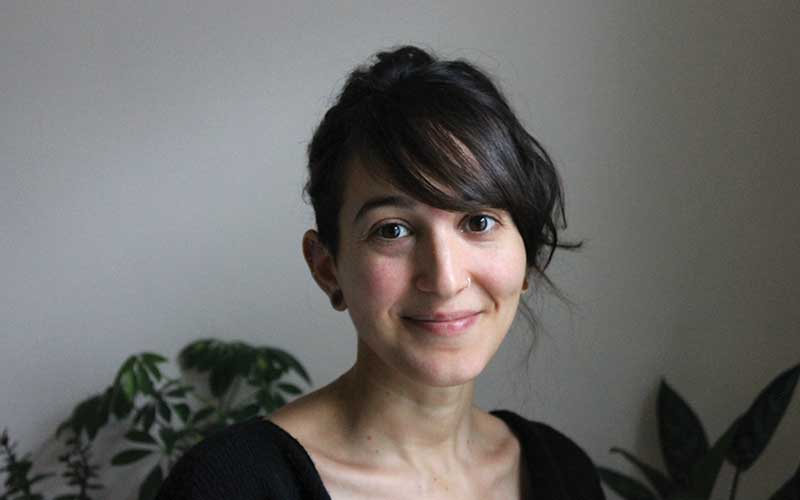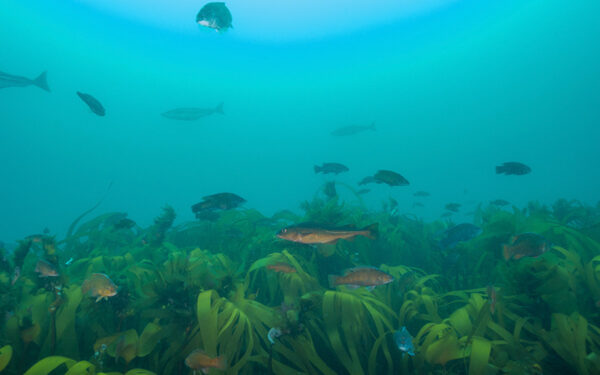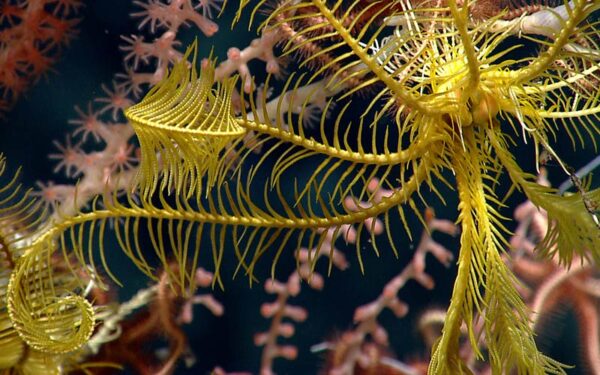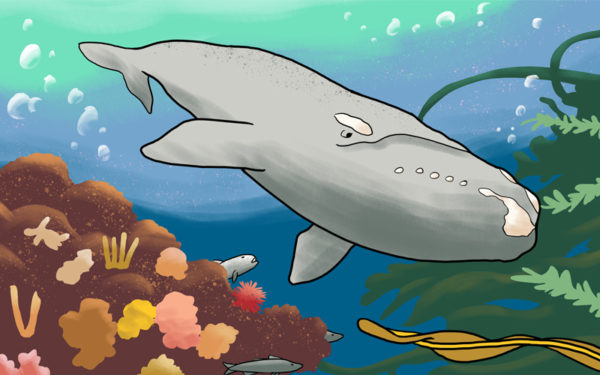
As the Senior Vice President at Bow Seat Ocean Awareness Programs, Alyssa Irizarry is engaging young people in ocean conservation and advocacy through the arts.
In 2019, Bow Seat Ocean Awareness Programs presented the Healthy Whale, Healthy Ocean Challenge, in partnership with CLF. Students of all ages from across New England created art, poetry, and film to raise awareness of the critically endangered North Atlantic right whale.
We sat down with Senior Vice President Alyssa Irizarry to learn more about what inspires her and about how youth can become advocates for our ocean.
Where did your love for the ocean start?
Two places shaped who I am: Long Beach Island, New Jersey, and Hilton Head Island, South Carolina – barrier islands that I visited every summer throughout my childhood. The expansive Atlantic, and particularly the intertidal, was a site of endless discovery. I’m grateful that my parents allowed and encouraged unstructured exploration of these beautiful places; curiosity and wonder were, and remain, the foundation for my connection to this watery world. Love for the ocean, as I understand it now, is a feeling of deep gratitude and belonging.
Tell us about the intersection of art and advocacy.
Art changes people, and people change the world.
By creating spaces that invite reflection, inquiry, and imagination, environmental art serves as a powerful conduit for advocacy. Artists provide new ways to understand our changing world. They stimulate our minds by shifting the way we see the world and open our hearts to emotional or empathetic experiences. Their work may act as a means of truth-sharing – shining a light on destruction, revealing systems and structures of power, reflecting our role in the process of ecological breakdown or recovery. Artists make visible, audible, or felt our interconnection with nature and offer possibilities for a better path forward in our collective future.
What role can and do youth play in protecting our oceans?
We all have a role to play, and the responsibility, to protect the ocean. But young people increasingly understand that adults did not do enough in the last 30 years to avoid the planetary emergency we are now facing.
Nearly half of the world’s population is under the age of 25, and they are a force to be reckoned with, as we’ve witnessed through the youth-led climate mobilization in the past two years. Young people look at the state of the oceans – plastic-choked shorelines, graveyards of coral, oil-soaked seabirds, island nations disappearing under rising seas – and they know something is fundamentally wrong. They recognize that the impacts of a changed climate, a warmed and acidified ocean, will be the defining feature of the world they inherit and inhabit.
But they’re resisting, disrupting, and rejecting the narrative that the necessary solutions are too big, too expensive, too radical. Our ocean faces big, daunting challenges, but youth are standing up to them with courage, conviction, and the capacity not only to imagine possible alternatives, but to lead our communities in creating them.
How have Bow Seat’s contests impacted the young people who have participated?
The Ocean Awareness Contest asks students to research issues impacting the health of our ocean and to confront the difficult reality of pollution, extinction, and the growing climate crisis. Many of our program participants report learning about issues like coral bleaching, ocean acidification, offshore drilling, and microplastics for the first time, or exploring them with new eyes through the creative process.
Students tell us that by actively creating something in response to their research, they gain a sense of empowerment that motivates making changes in their personal lives. And, that expands outward to encourage changes at home, school, or locally and nationally.
What have you, in turn, learned from your young artists?
Bow Seat’s young artists show me the power of courage. It is really special to facilitate a space for students to make meaning of the climate crisis and support them in taking action. I see courage when they question how we got to this point and acknowledge that things won’t – and can’t – be the same.
Our students tell us that they experience fear, confusion, heartache, and anger from a growing awareness of the many environmental crises before us. But they also express hope, particularly in the possibility of change.
Arizona high schooler Akhila Bandlora had never visited the ocean but was deeply moved by learning about pollution, climate denial, and environmental (in)justice. Writing poetry was her first, empowering step as an activist. Akhila went on to help organize her city’s first youth climate strike and performed her award-winning poem for the crowd. This is one of the thousands of stories we’ve heard from Bow Seat students whose art-making was a catalyst for change within and beyond themselves.
Courage is a muscle our students strengthen by sharing their visions for a thriving, sustainable future – I’m excited to be a part of helping them create it.
EXPLORE MORE
The annual Ocean Awareness Contest, Bow Seat’s largest initiative, invites youth to explore the connections between human activities and the health of our ocean through visual art, writing, music, and film. Since 2012, more than 13,000 middle and high schoolers from all 50 U.S. states and 106 countries have participated.
Bow Seat’s 2020 Ocean Awareness Contest – Climate Hope: Transforming Crisis – is accepting submissions through June. Teachers, families, and students can learn more at bowseat.org/contest.



